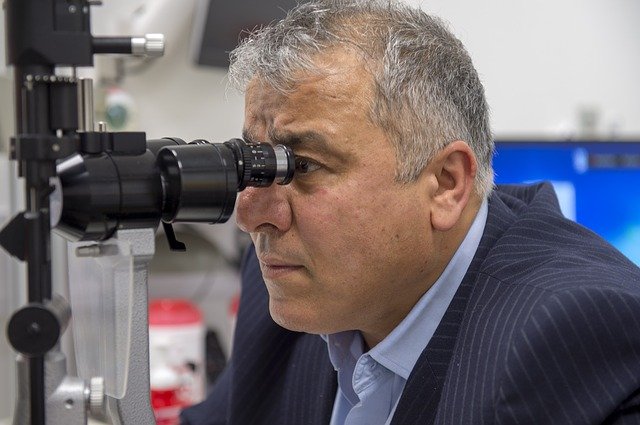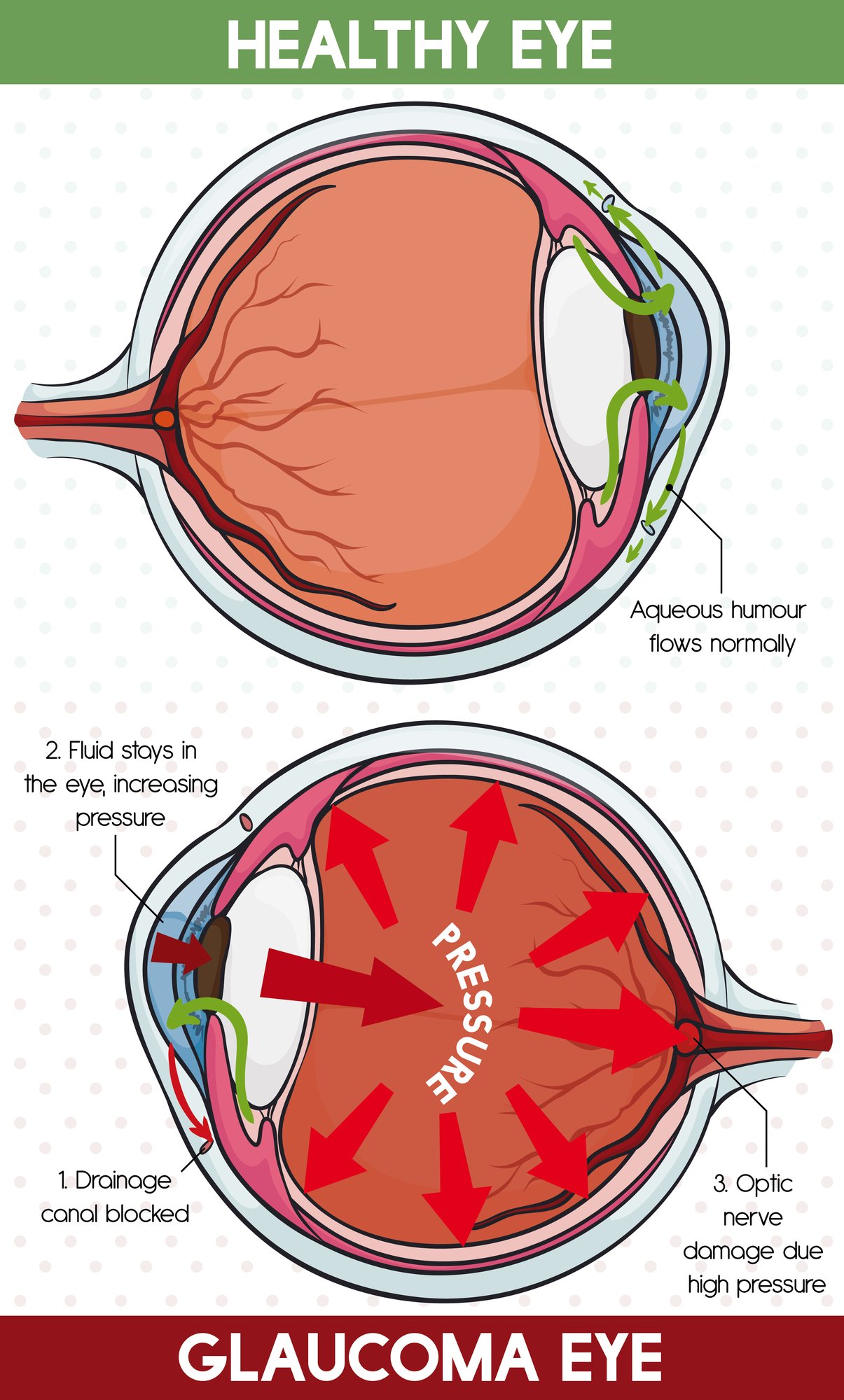Glaucoma is a series of conditions in which the eyes are damaged, specifically on the optic nerve which is fundamental to the health of the eye. Glaucoma is usually caused by an abnormal amount of extremely high pressure in the eye. Glaucoma occurs more often around 60 and onward, but can still be diagnosed in older adults that aren’t too elderly. Although it seems as if it would be easy to detect such a drastic sounding condition with such extreme symptoms, it is so gradual that nobody notices it until their doctor tells them the news.
Glaucoma is so slow and gradual and takes so much time to form and show itself that it is difficult to discover and help the problem before it manifests itself into something worse. Since there aren’t any warning signs to treat and discover glaucoma before it is too late, the best way to treat glaucoma is to regularly check your eyesight with your doctor as an older adult. It is best to get regular eye exams as most types of glaucoma could damage your eyesight to the point of no return. To damage so severe that it can’t possibly be recovered.
Symptoms and Types
There are many types of glaucoma, and the symptoms and experiences could vary and differ depending on the certain type and stage whether it is advanced or beginning to form.
Open-Angle
- Patchy and blind spots frequently found in your peripheral or central views.
- Tunnel vision in somewhat advanced stages
Acute angle-closure glaucoma
-
Severe Headaches
-
Eye pain
-
Nausea and Vomiting
-
Blurred vision
-
Halos and starbursts around lights
-
Eye redness
Without any treatment and if left without diagnosing, glaucoma will eventually lead to complete blindness. Although, if left undetected until later, even some patients go blind in one eye around 20 years after starting treatment. This shows that if glaucoma goes undetected, there is no way to eliminate the problem. Treatment can only delay or prevent some levels of blindness if not discovered early.

When should you see a doctor?
It is ideal and important to quickly go to the emergency room or visit your ophthalmologist as soon as possible if any symptoms of acute angle-closure glaucoma or any eye pain that coincides with the symptoms of any sort of glaucoma. Glaucoma is a result of any damage to the optic nerve. And as more and more damage is done to the nerve, your vision will deteriorate and blind spots will occur. For reasons that aren’t understood by doctors, this condition is usually related to increased pressure in the eye.
This elevated eye pressure is caused by an excessive buildup of a fluid known as aqueous humor that streams through the eye. This is an internal fluid that in healthy eyes normally is drained out of a tissue known as the trabecular meshwork. The fluid flows at the angle where the cornea and the retina meet. When extra fluid is produced or there isn’t a clear flow for the fluid to escape like if your eye’s drainage system has grown faulty the fluid cannot escape at its normal rate and the pressure of the eye increased. Doctors have found it possible for glaucoma to be passed down and inherited from generation to generation as they have discovered specific genes that cause nerve damage and high optic pressure.
Since abnormal high amounts of pressure in the eye can’t just affect one single specific part of the eye, there are many different types of glaucoma with many different symptoms.
Open-Angle
The most common form of glaucoma in which the drainage angle is in the correct position, but the trabecular meshwork is partially blocked so not enough fluid can flow out fast enough.
Angle-Closure
This type of glaucoma occurs when the iris bulges and blocks the drainage angle or forces the angle into a narrow pathway, which is too narrow to effectively work.
Normal-Tension
Normal-Tension glaucoma is the most unknown form of glaucoma as there isn’t much evidence to show how the eye is damaged. Normal-tension glaucoma damages the optic nerve even though the pressure of the eye is in a normal and healthy range.
Glaucoma is a serious series of conditions in which the optic nerve is damaged through excessive amounts of high eye pressure. There are multiple types of glaucoma with many different conditions in which glaucoma could be caused and the best way to discover and treat it is to get regular eye exams as an older adult.
